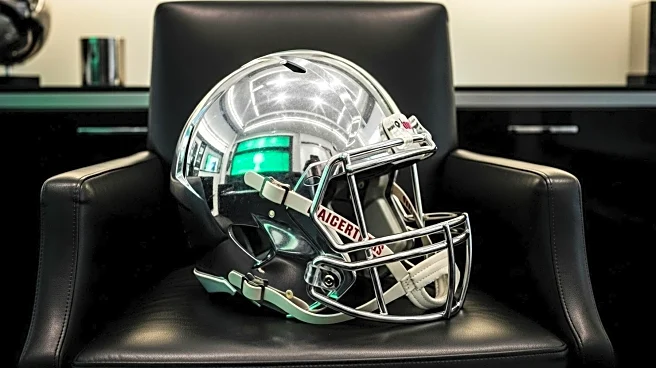What's Happening?
Dallas Cowboys owner Jerry Jones has defended his decision to trade star edge rusher Micah Parsons to the Green Bay Packers in a significant deal. The trade involved Parsons being exchanged for veteran defensive tackle Kenny Clark and two first-round draft picks in 2026 and 2027. Jones emphasized the importance of acquiring multiple players for the future, stating that the trade was beneficial in terms of numbers. Parsons, upon joining the Packers, signed a four-year, $188 million contract, making him the highest-paid non-quarterback in NFL history. Despite the trade, Parsons expressed a desire to remain with the Cowboys, as noted by his agent, David Mulugheta.
Why It's Important?
The trade of Micah Parsons has significant implications for both the Dallas Cowboys and the Green Bay Packers. For the Cowboys, losing Parsons means a substantial gap in their defense, as he has been a key player with consistent high performance. The acquisition of Kenny Clark and future draft picks suggests a strategic move to build a stronger team in the long term. For the Packers, acquiring Parsons strengthens their defense and adds a high-profile player to their roster, potentially enhancing their competitiveness in the league. This trade reflects broader strategies in the NFL where teams balance immediate talent with future prospects.
What's Next?
The Dallas Cowboys will need to adjust their defensive strategy to compensate for the loss of Parsons. The team may focus on developing new talent or leveraging the acquired draft picks to strengthen their lineup. Meanwhile, the Green Bay Packers will integrate Parsons into their team dynamics, aiming to capitalize on his skills to improve their defensive performance. Both teams will likely monitor the outcomes of this trade closely, assessing its impact on their season performance and long-term goals.
Beyond the Headlines
This trade highlights the complex nature of team management in the NFL, where financial considerations and player preferences can significantly influence decisions. The move also underscores the emotional aspect of sports, as players like Parsons may have personal affiliations with teams that are disrupted by business decisions. The trade could lead to discussions about player loyalty and the balance between personal aspirations and professional opportunities.









